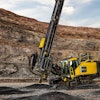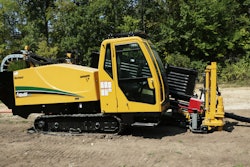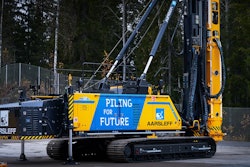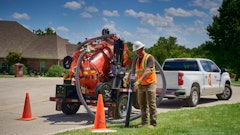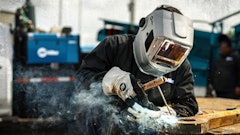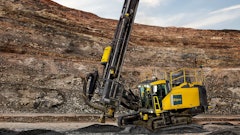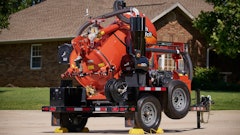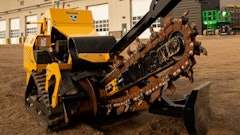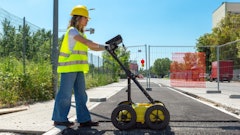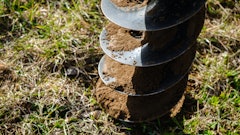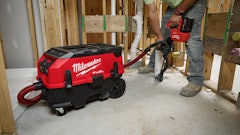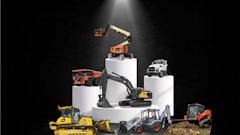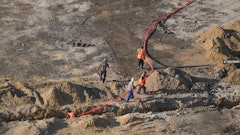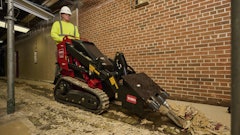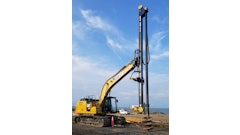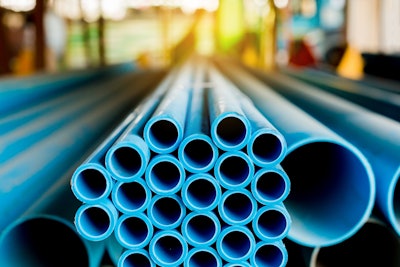
Polyvinyl chloride, better known as PVC, is a versatile material that’s used in a wide variety of piping applications. It can be as thin and flexible as a wall covering or as rigid as an industrial pipe. It can also be matched to any color or made entirely transparent.
Due to its strength, durability, cost-effectiveness, and many other factors, PVC piping is used in a wide variety of applications in building and construction.
Common Uses for PVC Piping in Construction
PVC is one of today’s most popular materials for building and construction. It has many excellent qualities that make it a clear front runner to its counterparts. It’s a lightweight, durable, water-resistant material that has a long lifecycle and doesn’t require much maintenance. PVC is widely used for plumbing and electrical applications in new projects and to replace traditional materials like wood and metal in refurbishment projects. Read on to learn more about the different types of PVC and their common uses in construction.
PVC vs. uPVC
One of the things that makes PVC so versatile is that it comes in various types, and each can be used for different applications. Regular PVC piping is the most common type and the type that’s used for piping in construction applications. It’s a strong yet lightweight plastic that can be made softer and more flexible when plasticizers are added to it. If no plasticizers are added, it is known as rigid PVC.
PVC is a flexible plastic that can be used for everything from insulating electrical cables to distributing non-potable water in plumbing applications. This versatile material can be made to look like other materials and manufactured in many different colors. These features make it ideal for use as a replacement for wood in construction applications and vinyl siding.
Piping
PVC can be used to create virtually leak-free pipes that help conserve energy and water. PVC pipes are corrosion-resistant and resistant to environmental stress. The natural features of PVC piping keep buildup from building up, improving their functionality and increasing energy efficiency.
PVC is often used to produce a wide variety of piping and is the preferred material for most plastic pipes in the world today. It has smooth inner walls that assist in water flow and is incredibly resistant to chemical erosion. It also functions well in a wide range of operating pressures and temperatures. These features, combined with its strength and cost-effectiveness, make it an ideal choice for exterior drainage pipes and sewage lines.
PVC piping can be used instead of cast iron for some heavy-duty plumbing and draining applications. It can also be used as a replacement for aluminum and copper pipes for use in irrigation and pool circulation systems as well as in waste lines. It is easy to cut into pieces of various sizes and can be easily fastened with glue, making it an ideal alternative to metal as well.
In addition to piping, PVC is the number-one material choice for the following construction applications:
- Cables – PVC is one of the most trusted materials for electrical wiring and cable applications. It can withstand harsh conditions, such as dampness and exposure to varying temperatures, behind building walls for the life of the building.
- Windows – PVC helps produce affordable, extremely durable, and energy-efficient siding and window frames that are highly durable.
- Flooring – PVC (or vinyl) flooring is durable enough to withstand heavy foot traffic, is easy to install and maintain, reduces noise, and is comfortable to walk on. PVC flooring is also 100% recyclable.
- Roofing – PVC roofing membranes are easy to install, highly weather-resistant, strong, and durable. PVC roofing membranes are also 100% recyclable.
Why PVC is a Good Choice for Construction Applications
PVC products are resistant to oil, weather, and UV radiation, making them the perfect choice for most construction applications. PVC is highly versatile and produces high standards of quality. Finished PVC products can be made in any color and are flexible or resistant to mechanical shock.
PVC doesn’t corrode like many other building materials. It can be cleaned easily with mild cleaning products and doesn’t require frequent painting. Because of its strength and resistance to abrasion and moisture, PVC is ideal for everything from fencing, decking, and flooring to roofing, cladding, wall coverings, and windows.
Read on to learn more about the main features that make PVC a good choice for construction applications.
Strong and Lightweight
PVC is a strong, lightweight, stiff, and low-cost plastic material that’s easy to bond using solvents or adhesives. Its resistance to abrasion, natural mechanical strength, toughness, and light weight are just some of the features that make PVC ideal for many building and construction applications.
Easy to Install
One of the most popular applications for PVC piping is drainpipes. Most of today’s plumbers and construction workers prefer PVC because it’s easy to cut, join, shape, and weld in a variety of styles. It can be cut easily with a hacksaw and joined together with easy-to-apply solvent cement. PVC won't corrode unlike its galvanized steel, copper, and metal counterparts, which eliminates any worries about pinhole leaks or restricted water flow.
Durable
PVC piping is said to last 25-40 years, but with technological advancements, this number is climbing. PVC has been shown to last 100 years and beyond for underground pipes. The first PVC piping systems were actually installed more than 80 years ago, and most of them are still in use today. These numbers become even more significant when you consider that PVC pipe systems show a much lower failure rate than piping systems made with other materials.
In above-ground applications like cable insulation and window profiles, well over half have been shown to have lifespans of over 40 years. This is due in part to PVC’s high resistance to shock, abrasion, chemical corrosion, weathering, and rotting.
Cost-Effective
PVC has many technical and physical properties that provide high levels of cost-performance advantages, which is one reason it has been the most popular material for a wide range of construction applications for decades. It’s very competitive in terms of price as a material alone. Of all the piping and construction materials available today, PVC pipes are the most cost-effective choice over their lifetime. This includes installation, maintenance, purchase, and dismantle costs.
Safe
PVC is naturally a non-toxic polymer that has been used as a socially valuable resource for over half a century. PVC pipes have a high degree of corrosion resistance and inertness, which makes them one of the safest options for transporting drinking water. They’re free from bio-film contamination and are one of the world’s most thoroughly researched and tested plastics. PVC meets all the international standards and abides by all regulations for safety and health.
Environmentally Friendly
PVC pipes are by far the most environmentally friendly of most traditional piping and construction materials. It’s a low-carbon plastic that requires far less energy and fewer resources to manufacture than its counterparts. It also has a very low weight, which requires less energy to transport. PVC pipes also last a long time, require a minimum amount of maintenance, and are easily recyclable up to 8 to 10 times.
PVC pipes can be recycled easily several times over without losing the technical properties that make them so appealing for use in construction and building applications. Moreover, their leak-free fittings eliminate water loss, and their smooth surface reduces energy use and pumping costs. These factors make them good for both the environment and consumer utility bills.
The Best Material for Construction
When you consider all the factors that make PVC useful for construction environments, it’s easy to see how it has grown so quickly in popularity. Whether you’re using it to build a drainage system for a new building, to encase electrical cables around the house, or to install a swimming pool, PVC provides a vast number of benefits. From being one of the most durable, safest, cost-effective, and long-lasting materials available for piping, construction, and building applications today, you can’t go wrong with this versatile plastic that has unsurprisingly taken the industry by storm over the last few decades. If it’s the planet you’re most concerned with, this is by far the most durable and long-lasting environmentally friendly material you can choose for your building needs.

